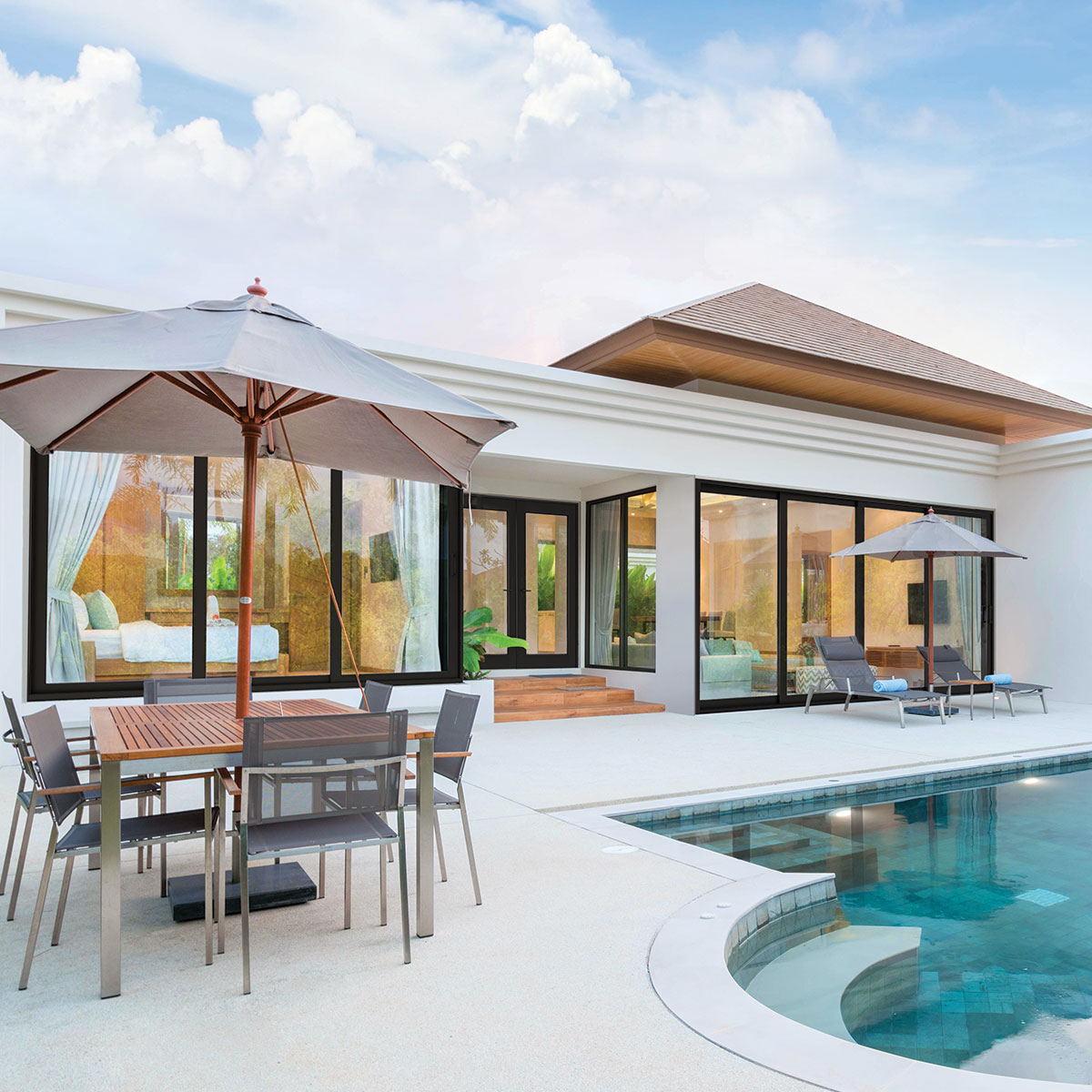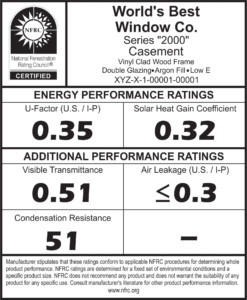
When you are looking for replacement windows for your home, you will notice that manufacturers mention window ratings in their product descriptions. Often, there is no explanation of what those ratings mean. As a homeowner in Bermuda or the Caribbean, it is important to know more about these ratings since the likelihood of tropical weather and high temperatures play a role in new window performance and price.
Energy Ratings
If you want to save money on your air conditioning bills, you should look for energy-efficient window ratings. There are two types that you will see most often:
ENERGY STAR®
ENERGY STAR® is a label given to windows, appliances, and other products that are rated energy efficient to the standards of the United States Environmental Protection Agency. For windows, an ENERGY STAR rating means they perform well in two areas:
U-FACTOR
- Measures the rate of heat transfer and flow not directly from sunlight.
- This rating shows how well the window insulates and ranges from 0.25 to 1.25.
- The lower the U-Factor number, the better the window insulates against heat.
SOLAR HEAT GAIN COEFFICIENT (SHGC)
- Measures the amount of heat transmitted from the sun into a home.
- This rating shows how well the window blocks heat from sunlight and ranges from 0.25 to 0.80.
- The lower the SHGC number, the less solar heat is transferred through the window.
National Fenestration Rating Council
The National Fenestration Rating Council (NFRC), is a third-party non-profit organization that independently tests, rates and certifies windows, doors, and skylights. The NFRC tests for U-factor and SHGC like Energy Star but also goes a step further to test the entire window for air leakage and visible transmittance. NFRC also rates condensation resistance, which is an optional rating that measures how well a window resists water build-up.
AIR LEAKAGE (AL)
- Measures the rate that air passes through the window and is also known as air infiltration.
- This rating ranges from 0.1 to 0.3.
- The lower the AL value, the less air leakage.
- The rating is determined before windows are installed. Air leakage may increase if the windows are installed incorrectly and have drafts.
VISIBLE TRANSMITTANCE (VT)
- Measures the amount of daylight the window lets into your home.
- This rating ranges from 0.2 to 0.8.
- The higher the VT number, the more natural light coming through the window
The NFRC window rating label is often seen together with ENERGY STAR-rated windows. If your windows do not have a sticker similar to the one shown below, they have not received an energy rating.

Storm Ratings
Manufacturers of impact windows and hurricane windows will often mention “Miami-Dade Notice of Acceptance” or “Florida Building Code (FBC).” In short, this means their windows are designed to better handle storms.
The Florida Building Code requires windows “to be impact-resistant or protected if located within one mile of the coast if the wind speed is 110 mph or greater.” These impact tests must take place in FBC-approved labs and must be approved by certain entities, including Miami-Dade County (which has the United States’ strictest requirements). Due to the frequency and intensity of storms in Bermuda and the Caribbean, it is always a good idea to look for these window ratings on your home’s replacement windows.
Global Sales has a wide selection of windows available for Bermuda and Caribbean homeowners. Our window experts can explain the different window ratings and more importantly how ratings effect window prices. Contact us to learn more.
